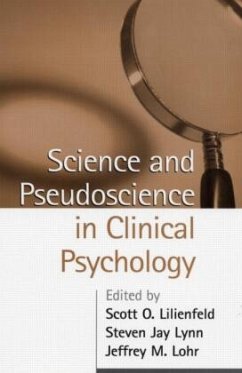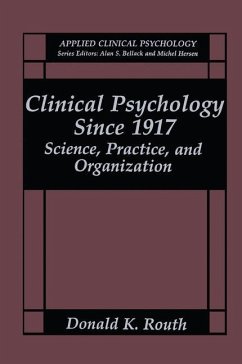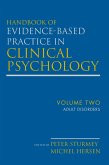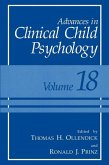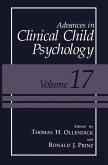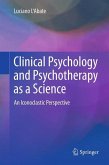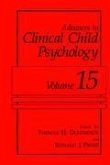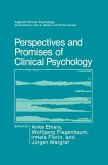Table of contents:
‘Lilienfeld, Lynn, Lohr,’ Science and Pseudoscience in Clinical Psychology: Initial Thoughts, Reflections, and Considerations. Part 1: Controversies in Assessment and Diagnosis. ‘Garb, Boyle,’ Understanding Why Some Clinicians Use Pseudoscientific Methods: Findings from Research on Clinical Judgment. ‘Hunsley, Lee, Wood, ‘Controversial and Questionable Assessment Techniques. ‘McCann, Shindler, Hammond, ‘The Science and Pseudoscience of Expert Testimony. ‘Lilienfeld, Lynn, ‘Dissociative Identity Disorder: Multiple Personalities, Multiple Controversies. Part 2: General Controversies in Psychotherapy. ‘Garske, Anderson, ‘Toward a Science of Psychotherapy Research: Present States and Evaluation. ‘Singer, Nievod, ‘New Age Therapies. ‘Lynn, Lock, Loftus, Krackow, Lilienfeld, ‘The Remembrance of Things Past: Problematic Memory Recovery Techniques in Psychotherapy. Part 3: Controversies in the Treatment of Specific Adult Disorders. ‘Lohr, Hooke, Gist, Tolin,’ Novel and Controversial Treatments for Trauma-Related Stress Disorders. ‘MacKillop, Lisman, Weinstein, Rosenbaum, ‘Controversial Treatments for Alcoholism. ‘Walach, Kirsch,’ Herbal Treatments and Antidepressant Medication: Similar Data, Divergent Conclusions. Part 4: Controversies in the Treatment of Specific Child Disorders. ‘Waschbusch, Hill, ‘Empirically Supported, Promising, and Unsupported Treatments for Children with Attention-Deficit/Hyperactivity Disorder. ‘Romancyck, Arnstein, Soorya, Gillis, ‘The Myriad Controversial Treatments for Autism: A Critical Evaluation of Efficacy. Part 5: Controversies Regarding Self-Help and the Media. ‘Rosen, Glasgow, Moore, ‘Self-Help Therapy: The Science and Business of Giving Psychology Away. ‘Wilson, ‘Commercializing Mental Health Issues: Entertainment, Advertising, and Psychological Advice. ‘Lilienfeld, Lynn, Lohr, ‘Science and Pseudoscience in Clinical Psychology: Concluding Thoughts and Constructive Remedies.
This is the first major text designed to help professionals and students evaluate the merits of popular yet controversial practices in clinical psychology, differentiating those that can stand up to the rigors of science from those that cannot. Leading researchers review widely used therapies for alcoholism, infantile autism, ADHD, and posttraumatic stress disorder; herbal remedies for depression and anxiety; suggestive techniques for memory recovery; and self-help models. Other topics covered include issues surrounding psychological expert testimony, the uses of projective assessment techniques, and unanswered questions about dissociative identity disorder. Providing knowledge to guide truly accountable mental health practice, the volume also imparts critical skills for designing and evaluating psychological research programs.
This book offers a rigorous examination of a variety of therapeutic, assessment, and diagnostic techniques in clinical psychology, focusing on practices that are popular and influential but lack a solid grounding in empirical research.
‘Lilienfeld, Lynn, Lohr,’ Science and Pseudoscience in Clinical Psychology: Initial Thoughts, Reflections, and Considerations. Part 1: Controversies in Assessment and Diagnosis. ‘Garb, Boyle,’ Understanding Why Some Clinicians Use Pseudoscientific Methods: Findings from Research on Clinical Judgment. ‘Hunsley, Lee, Wood, ‘Controversial and Questionable Assessment Techniques. ‘McCann, Shindler, Hammond, ‘The Science and Pseudoscience of Expert Testimony. ‘Lilienfeld, Lynn, ‘Dissociative Identity Disorder: Multiple Personalities, Multiple Controversies. Part 2: General Controversies in Psychotherapy. ‘Garske, Anderson, ‘Toward a Science of Psychotherapy Research: Present States and Evaluation. ‘Singer, Nievod, ‘New Age Therapies. ‘Lynn, Lock, Loftus, Krackow, Lilienfeld, ‘The Remembrance of Things Past: Problematic Memory Recovery Techniques in Psychotherapy. Part 3: Controversies in the Treatment of Specific Adult Disorders. ‘Lohr, Hooke, Gist, Tolin,’ Novel and Controversial Treatments for Trauma-Related Stress Disorders. ‘MacKillop, Lisman, Weinstein, Rosenbaum, ‘Controversial Treatments for Alcoholism. ‘Walach, Kirsch,’ Herbal Treatments and Antidepressant Medication: Similar Data, Divergent Conclusions. Part 4: Controversies in the Treatment of Specific Child Disorders. ‘Waschbusch, Hill, ‘Empirically Supported, Promising, and Unsupported Treatments for Children with Attention-Deficit/Hyperactivity Disorder. ‘Romancyck, Arnstein, Soorya, Gillis, ‘The Myriad Controversial Treatments for Autism: A Critical Evaluation of Efficacy. Part 5: Controversies Regarding Self-Help and the Media. ‘Rosen, Glasgow, Moore, ‘Self-Help Therapy: The Science and Business of Giving Psychology Away. ‘Wilson, ‘Commercializing Mental Health Issues: Entertainment, Advertising, and Psychological Advice. ‘Lilienfeld, Lynn, Lohr, ‘Science and Pseudoscience in Clinical Psychology: Concluding Thoughts and Constructive Remedies.
This is the first major text designed to help professionals and students evaluate the merits of popular yet controversial practices in clinical psychology, differentiating those that can stand up to the rigors of science from those that cannot. Leading researchers review widely used therapies for alcoholism, infantile autism, ADHD, and posttraumatic stress disorder; herbal remedies for depression and anxiety; suggestive techniques for memory recovery; and self-help models. Other topics covered include issues surrounding psychological expert testimony, the uses of projective assessment techniques, and unanswered questions about dissociative identity disorder. Providing knowledge to guide truly accountable mental health practice, the volume also imparts critical skills for designing and evaluating psychological research programs.
This book offers a rigorous examination of a variety of therapeutic, assessment, and diagnostic techniques in clinical psychology, focusing on practices that are popular and influential but lack a solid grounding in empirical research.
